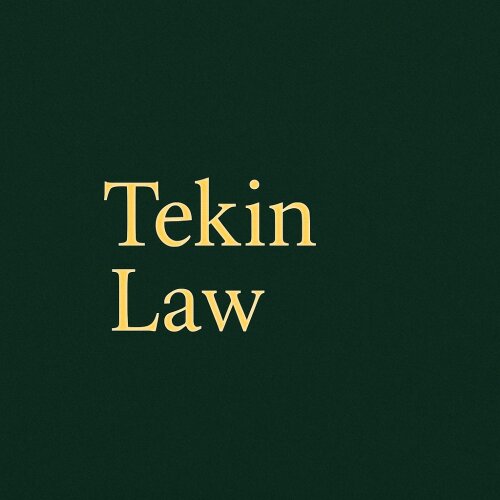Best Contract Lawyers in Turkey
Share your needs with us, get contacted by law firms.
Free. Takes 2 min.
Or refine your search by selecting a city:
List of the best lawyers in Turkey
Legal guides written by Tekin Law Firm:
- Arbitration in Turkey
Turkey Contract Legal Articles
Browse our 1 legal article about Contract in Turkey written by expert lawyers.
- How to Protect Your Intellectual Property in Turkey
- First-to-File Supremacy: Turkey operates on a first-to-file system, meaning the first entity to apply for a trademark or patent generally secures the rights, regardless of prior use by others. Mandatory Local Filing: While Turkey is a member of the Madrid Protocol, direct filing with the Turkish Patent and Trademark Office... Read more →
About Contract Law in Turkey
Contract law in Turkey is primarily governed by the Turkish Code of Obligations, which is aligned closely with European civil law traditions, particularly Swiss law. This body of law encompasses various types of contracts, including sales, leases, and employment agreements, among others. The core principle of Turkish contract law is the principle of freedom of contract, giving the parties significant autonomy to shape their agreements, provided they do not contravene mandatory legal provisions, public order, or morality.
Contracts must meet certain legal criteria to be valid: an offer, an acceptance, a lawful subject matter, and consideration. Contracts can be in written or verbal form; however, certain types must be in writing to be enforceable, such as real estate agreements. The Turkish legal system also recognizes electronic contracts, in line with modern commerce needs.
Why You May Need a Lawyer
Engaging a lawyer for contract-related matters can be crucial in several situations:
1. Drafting and Reviewing Contracts: Lawyers ensure contracts are well-drafted, comprehensive, and legally sound, anticipating and mitigating potential risks and disputes.
2. Contract Negotiations: A lawyer can guide you through negotiations, ensuring your interests are adequately protected and the terms agreed are clear and enforceable.
3. Dispute Resolution: If a contract dispute arises, legal representation can be essential to navigate arbitration or litigation effectively.
4. Complex Transactions: Involved transactions, such as mergers, acquisitions, or significant asset purchases, require legal expertise to address potential legal hurdles.
Local Laws Overview
Several key aspects of Turkish contract law are significant for parties entering into contractual agreements:
Written Requirement: Certain contracts must be documented in writing, including those involving property interests and guarantees.
Consumer Protection Laws: These laws stipulate certain rights and protections for consumers entering into contracts, such as the right to withdraw from distance-selling agreements within 14 days without penalty.
Governing Law and Dispute Resolution: Parties have the freedom to choose the governing law of their contracts, provided there is an international element, and can specify arbitration or court jurisdiction for dispute resolution.
Unfair Terms: The Turkish Code of Obligations addresses unfair contract terms and provides for the invalidation of terms that significantly disadvantage one party.
Frequently Asked Questions
What are the essential elements of a contract in Turkey?
The essential elements include consent, a specific object, a lawful cause, and the capacity of the parties involved.
Is verbal agreement legally binding in Turkey?
Yes, verbal agreements can be binding. However, for certain types of contracts, the law requires written form for enforceability.
What should I do if a contract is breached?
It is advisable to consult a lawyer to understand the remedies available, such as claiming damages or seeking specific performance.
Can I include a clause for international arbitration?
Yes, Turkish law permits the inclusion of arbitration clauses, even for disputes to be resolved outside of Turkey.
What is the statute of limitations for contract disputes?
The general statute of limitations under Turkish law for contract disputes is 10 years from the date the claim accrues.
Are digital signatures legally recognized?
Yes, digital signatures are recognized and legally valid under Turkish law, provided they meet certain technical specifications.
How is force majeure addressed in contracts?
Force majeure clauses are commonly used to relieve parties from liability due to extraordinary events beyond their control, and the specifics should be detailed in the contract.
What are my rights under consumer contracts?
Consumers have specific rights, such as the right to information, the right to safety, and the right to withdraw from a distance-selling contract within a specified period.
Can contracts be modified after signing?
Yes, contracts can be amended if all parties consent to the changes, preferably documented in writing.
Is court litigation the only way to resolve contract disputes?
No, alternative dispute resolution methods like arbitration and mediation are also available and often encouraged.
Additional Resources
Several governmental bodies and organizations can provide further assistance:
1. Turkish Bar Association: Offers resources and directories to find qualified lawyers.
2. Ministry of Justice: Provides information on legal rights and obligations in Turkey.
3. Consumer Rights Association: Offers support and guidance on consumer-related contract issues.
Next Steps
If you need legal assistance, consider the following steps:
1. Identify Your Needs: Clearly outline the specifics of your contract issue and what you hope to achieve legally.
2. Consult a Lawyer: Reach out to a qualified contract lawyer in Turkey to discuss your situation and obtain legal advice.
3. Gather Documentation: Prepare all relevant contract documents and communications related to your issue for review by your lawyer.
4. Consider Options: Work with your lawyer to consider all possible legal avenues, whether negotiation, mediation, arbitration, or court action.
Lawzana helps you find the best lawyers and law firms in Turkey through a curated and pre-screened list of qualified legal professionals. Our platform offers rankings and detailed profiles of attorneys and law firms, allowing you to compare based on practice areas, including Contract, experience, and client feedback.
Each profile includes a description of the firm's areas of practice, client reviews, team members and partners, year of establishment, spoken languages, office locations, contact information, social media presence, and any published articles or resources. Most firms on our platform speak English and are experienced in both local and international legal matters.
Get a quote from top-rated law firms in Turkey — quickly, securely, and without unnecessary hassle.
Disclaimer:
The information provided on this page is for general informational purposes only and does not constitute legal advice. While we strive to ensure the accuracy and relevance of the content, legal information may change over time, and interpretations of the law can vary. You should always consult with a qualified legal professional for advice specific to your situation.
We disclaim all liability for actions taken or not taken based on the content of this page. If you believe any information is incorrect or outdated, please contact us, and we will review and update it where appropriate.
Browse contract law firms by city in Turkey
Refine your search by selecting a city.

















